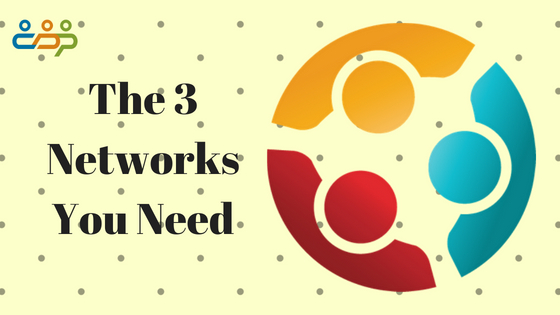We all know how important networks are in all the different parts of our lives: medical and health, financial and legal, and especially in work and career. What many don’t know is that to be successful you need not one but three networks: operational, developmental, and strategic.
First, of course, is the network of those you and your group need to do your day-to-day work. These are people in other units of the company, and outside, on whom you depend to do your work. This is your operational network. Those in it don’t work for you but your success depends on them. It also includes those who depend on you and your group to do their work.
Your developmental network is the collection of individuals you trust. You can turn to them for a sympathetic ear, advice, and a place to discuss and explore professional options. These are people who help you grow as a manager and leader.
You create both operational and developmental networks naturally. The people in your operational network are those you must work with every day. And most of us naturally turn to knowledgeable friends and acquaintances for help with professional dilemmas. You may not have thought about these two collections as networks, but they are. In our experience, most managers spend too little time and care on building and maintaining them. They’re mostly forged by immediate need, and they often lack key people
The third network you need – your strategic network – is the one many managers don’t create at all because it doesn’t happen in the everyday course of work and life. A strategic network is about tomorrow. It comprises those who can help you do two critical tasks: first, define what the future will bring and second, to help you prepare for and succeed in that future. There will be some overlap between this network and your operational network, but the differences are likely to be significant, too.
Nobody can predict the future, but that doesn’t mean you shouldn’t worry about it. Even if you cannot know what’s coming, you still need to identify what might happen – the most probable futures that lie ahead – and think about how you might prepare for them.
Your strategic network consists of outposts – individuals who work on the horizon of your world and can see into worlds beyond. Because there are many worlds surrounding yours and you can’t predict which will produce the invading forces of disruption, you need several outposts, and you need to create them intentionally because such relationships won’t develop naturally.
The good news is that your links to these outposts will mostly be what sociologists call “weak ties.” You connect with them only on occasion, perhaps once a month or even only two or three times a year. But once you’ve made the connection, you can keep it alive with an occasional email, phone call, cup of coffee, or hallway chat at a conference you both attend. And, once you’ve made the links, each outpost will know your interests and can let you know if anything of consequence to your world occurs in theirs.
Like all networks, a strategic network only works if it’s built on mutual interest. You serve as an outpost in your world for those who serve you in theirs. You learn their interests and goals and let them know if anything in your world might concern them.
Leadership and management are largely based on the future, on a sense of where you and your group are trying to go, the future you want to create. To define, move toward, and succeed in that future, you need to build proactively a far-flung network of people who live and work at the edge of your current world.
 Rick Christensen: Director, Career Transition Practice
Rick Christensen: Director, Career Transition Practice
Rick has been a career consultant for over 25 years, serving a very broad-based and diverse clientele. His specialties include effective group facilitation, one-on-one coaching and consultation at all levels including senior executives.
Rick’s passion is coaching individuals through career transitions, developing career management strategies and in identifying and sharpening competencies to open doors to new opportunities. His efforts have assisted thousands of individuals achieve their full potential.
Contact Rick at: Rick@CareerDevelopmentPartners.com
 Rick Christensen: Director, Career Transition Practice
Rick Christensen: Director, Career Transition Practice


